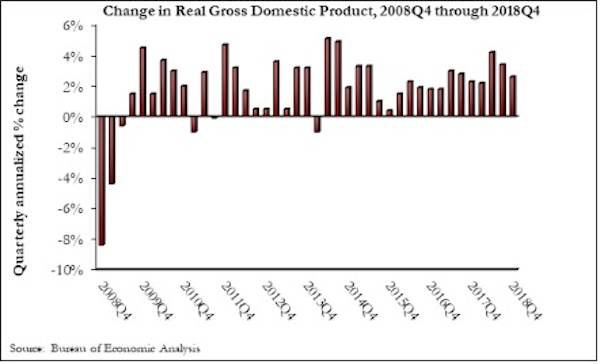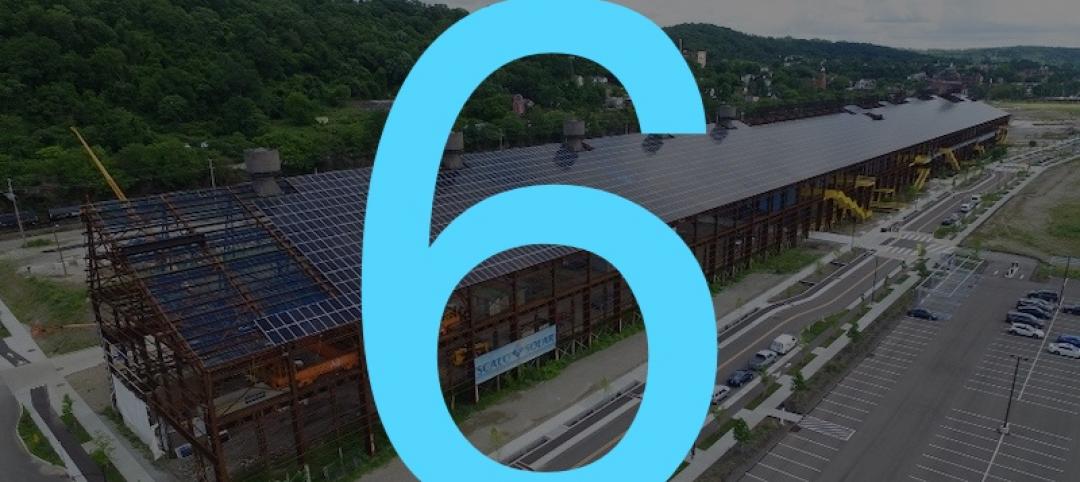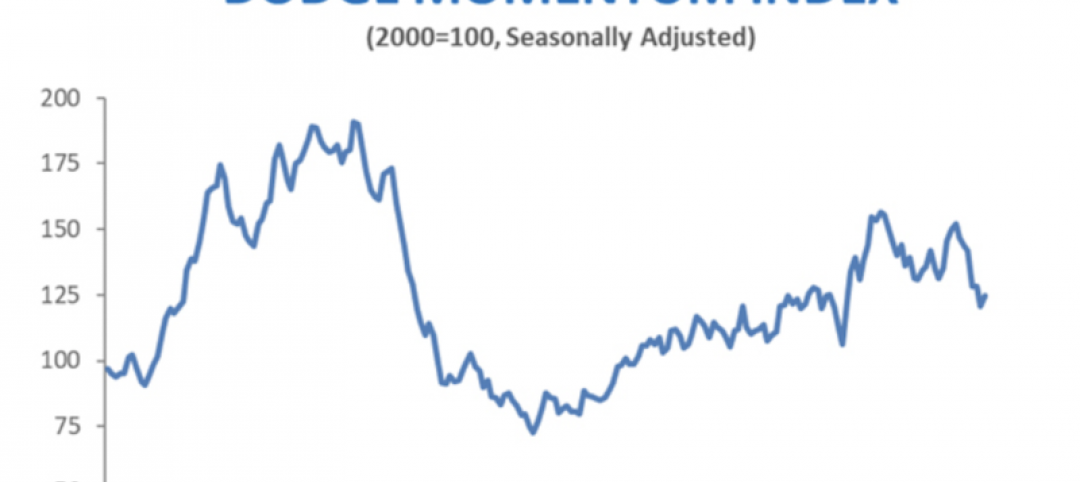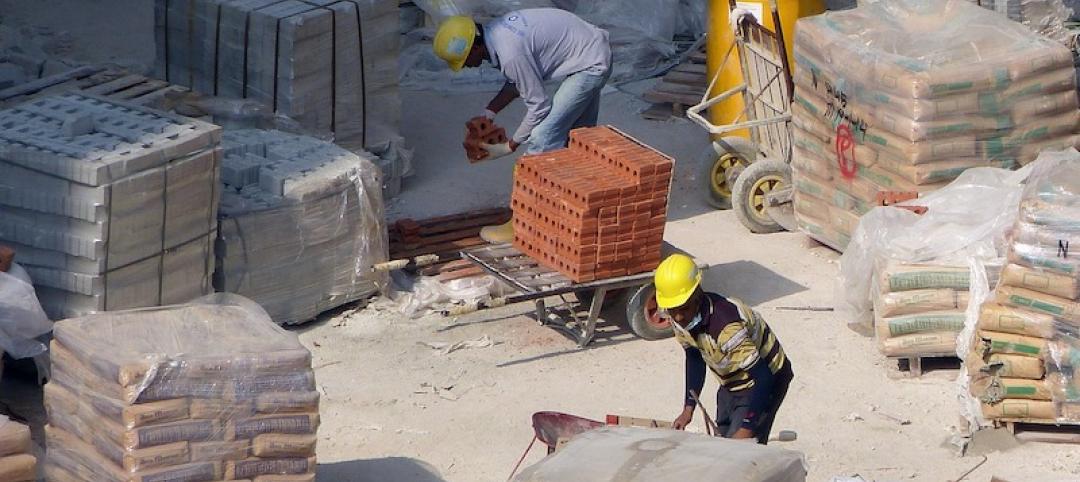The U.S. economy grew at an annual rate of 2.6% in the fourth quarter of 2018, according to an Associated Builders and Contractors analysis of data published today by the U.S. Bureau of Economic Analysis. Year-over-year GDP growth was 3.1%, while average growth for 2018 was 2.9%.
“Today’s GDP report confirms continued strong investment in nonresidential segments in America,” said ABC Chief Economist Anirban Basu. “Separately, construction spending data show significant expenditures on the construction of data centers, hotel rooms, theme parks and fulfillment centers. These data also indicate stepped up public construction spending in categories such as transportation, education, and water systems. Despite that, today’s GDP release indicated that investment in nonresidential structures actually declined 4.2% on an annualized basis during last year’s fourth quarter. Despite that setback, this form of investment was up by 5% for the entirety of 2018.
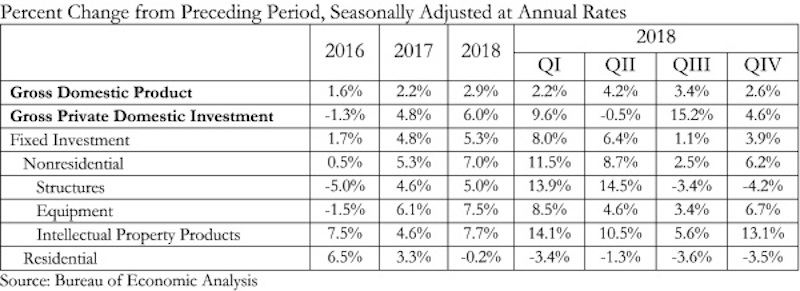
“Undoubtedly, some attention will be given to the fact that the U.S. economy expanded by just shy of 3% in 2018,” said Basu. “Unless that figure is revised upward in subsequent releases, it will mean that America has failed to reach the 3% annual threshold since 2005. But while much attention will be given to a perceived shortfall in growth, the fourth quarter figure of 2.6% signifies that the U.S. economy entered this year with substantial momentum. Were it not for a weak residential construction sector, 3% growth would have been attained. Moreover, the data indicate strength in disposable income growth and in business investment.
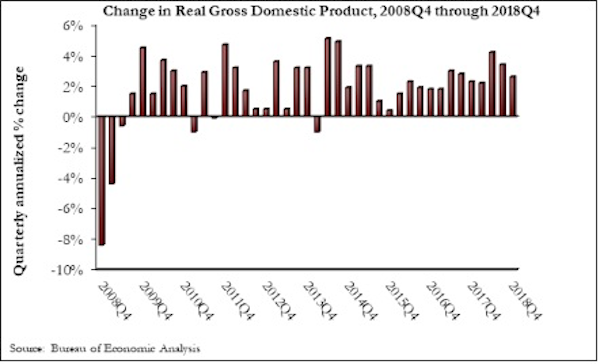
“It is quite likely that the U.S. economy will expand at around 2% this year,” said Basu. “Though interest rates remain low and hiring is still brisk, a number of leading indicators suggest that the nation’s economy will soften somewhat during the quarters ahead, which can be partly attributed to a weakening global economy. This won’t unduly impact nonresidential construction activity, however, since the pace of activity in this segment tends to lag the overall economy, and strong nonresidential construction spending expected in 2019. Finally, ABC’s Construction Backlog Indicator continues to reflect strong demand for contractors, which have nearly nine months of work lined up.”
Related Stories
Market Data | Aug 18, 2020
6 must reads for the AEC industry today: August 18, 2020
The world's first AI-driven facade system and LA's Greek Theatre restoriation completes.
Market Data | Aug 17, 2020
5 must reads for the AEC industry today: August 17, 2020
5 strategies for creating safer hotel experiences and how to manage multifamily assets when residents no longer leave.
Market Data | Aug 14, 2020
6 must reads for the AEC industry today: August 14, 2020
The largest single sloped solar array in the country and renewing the healing role of public parks.
Market Data | Aug 13, 2020
5 must reads for the AEC industry today: August 13, 2020
Apple Central World opens in Bangkok and 7-Eleven to buy Speedway.
Market Data | Aug 12, 2020
6 must reads for the AEC industry today: August 12, 2020
UC Davis's new dining commons and the pandemic is revolutionizing healthcare benefits.
Market Data | Aug 11, 2020
6 must reads for the AEC industry today: August 11, 2020
Elevators can be a 100% touch-free experience and the construction industry adds 20,000 employees in July.
Market Data | Aug 10, 2020
Dodge Momentum Index increases in July
This month’s increase in the Dodge Momentum Index was the first in all of 2020.
Market Data | Aug 10, 2020
Construction industry adds 20,000 employees in July but nonresidential employment dips
Association warns skid will worsen without new relief.
Market Data | Aug 10, 2020
5 must reads for the AEC industry today: August 10, 2020
Private student housing owners reap the benefits as campus housing de-densifies and race for COVID vaccine boosts real estate in life sciences hubs.
Market Data | Aug 7, 2020
6 must reads for the AEC industry today: August 7, 2020
BD+C's 2020 Color Trends Report and HMC releases COVID-19 Campus Reboot Guide for Prek-12 schools.


